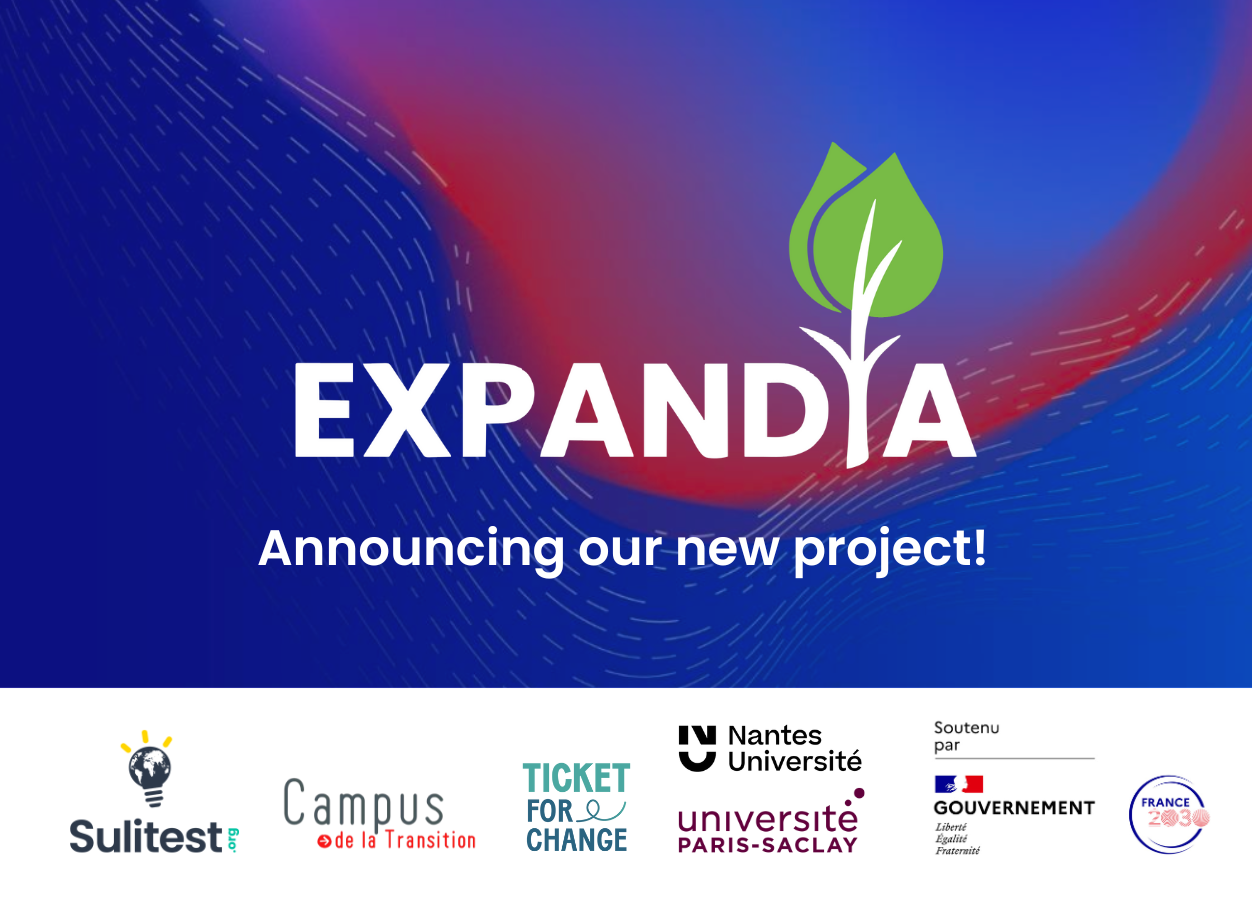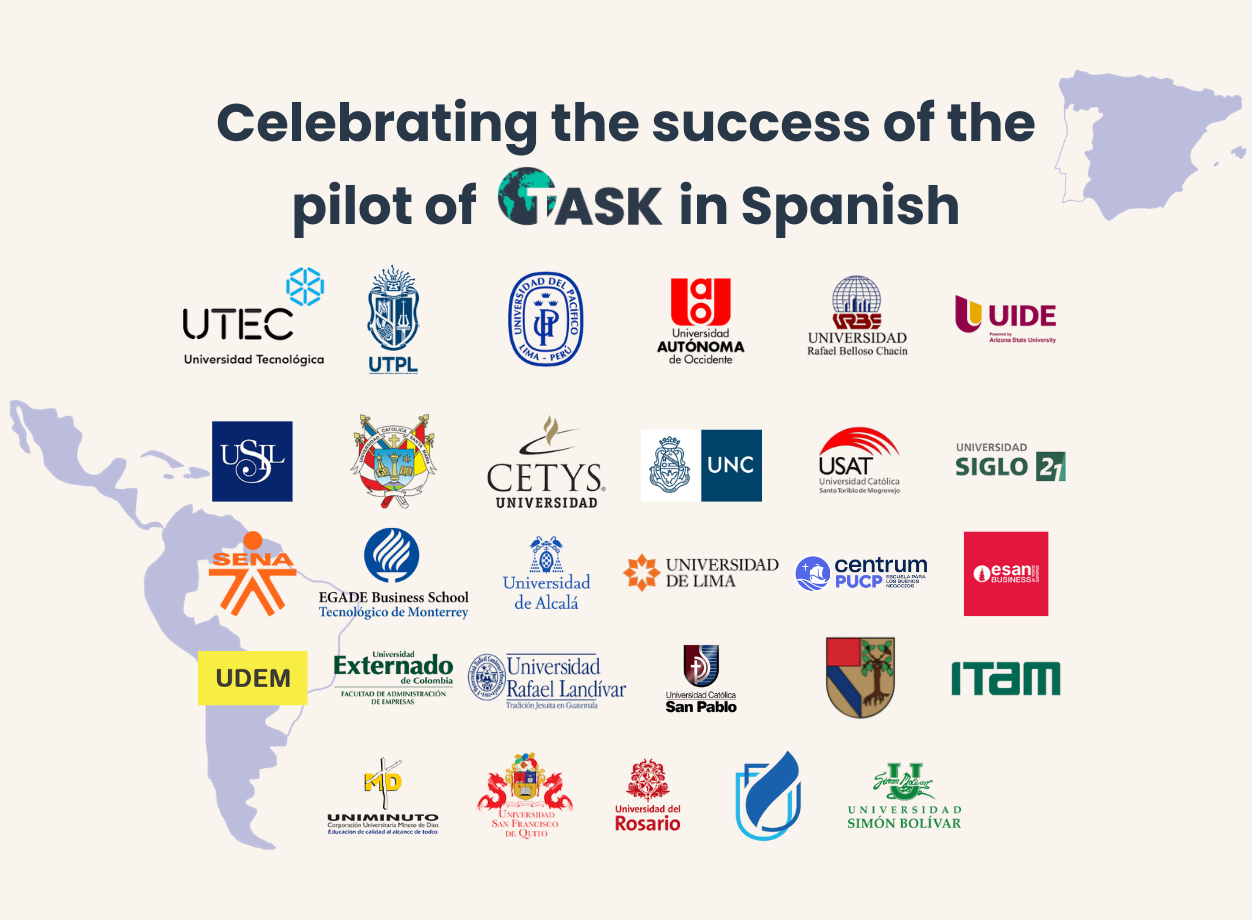
UniLaSalle: Embedding sustainability at the core of engineering education with TASK™

UniLaSalle, a French polytechnic institute specializing in agronomy, food and health sciences, veterinary medicine, geosciences, environmental engineering, energy engineering, digital systems and sustainable technologies, has made ecological and social transition a central pillar of its educational mission. As part of its "Uni4change" transformation strategy, the school has adopted TASK™ as a foundational teaching tool to help prepare responsible, sustainability-minded professionals.
Why TASK™?
For UniLaSalle,TASK™ is a way to give students a systems-level perspective on sustainability—beyond the boundaries of their technical training. The tool provides a structured way to assess and build a broad understanding of today’s complex global challenges.
TASK™ thus reinforces the educational ribbon deployed at UniLaSalle to train enlightened and responsible professionals.
How TASK™ is used at UniLaSalle
Year 1 – Awareness & orientation
Students takeTASK™ as part of an introductory sustainability module. Based on their results, they are directed to curated learning resources such as Intro2TASK and specialized MOOCs.
Year 2 – Thematic deep dive
Key sustainability themes from TASK™ are explored in greater depth within core disciplinary modules.
Year 3 – Post-mobility reassessment
Students participate in international mobility programs like GoLaSalle4SD, focused on projects with social and environmental impact.
Upon returning from mobility programs, students retake TASK™.
Years 4 & 5 – Specialization & reflection
In the final years, students specialize in sustainability topics aligned with their major—such as energy, environmental engineering, or digital technologies. TASK™data informs the continued refinement of curricula to better match real-world sustainability challenges.
Data insights
Introduced during students’ first year, TASK™ acts as a positioning assessment that identifies areas of strength and improvement.
After 2 years, the results show an average improvement, underscoring the effectiveness ofUniLaSalle’s integrated learning approach.
Caroline Le Moulec, Sustainability Manager at UniLaSalle, added that “We can also see some differences depending on the major of the students. For example, those studying environmental sciences often have better scores.”
Impact: a broader shift in educational culture
For UniLaSalle,TASK™ has sparked more than just improved learning outcomes — it’s contributed to a deeper institutional transformation. Notably, the initiative now includes faculty and administrative staff as well. Since September, all staff members—whether educators or support personnel—have been invited to take TASK™as a way to assess their own sustainability knowledge and perspectives.
Based on their results, staff are directed to tailored learning pathways, including a dedicated MOOC on climate and biodiversity. Participation in at least one follow-up workshop, such as Climate Fresk or Atelier 2 Tonnes, is also encouraged depending on campus offerings. This whole-institution approach strengthens a shared sustainability culture and reinforces UniLaSalle’s commitment to leading by example in the ecological transition.
This integrated approach with TASK™ is enabled thanks to the structuring of the Uni4change approach, UniLaSalle's ecological and societal transformation strategy adopted and implemented since September 2022.












